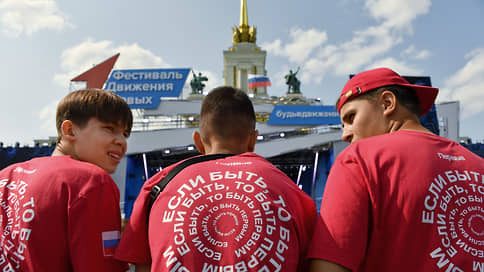“Movement of the First” for the first time will distribute grants for 2 billion rubles
[ad_1]

The Russian Movement of Children and Youth (RDYM) “Movement of the First” is preparing to sum up the results of the “Grants of the First” competition. Within its framework, 2 billion rubles. will be distributed among projects aimed at children, parents and educators. Applications for participation were submitted by almost 5 thousand organizations – schools, colleges, youth NGOs, cultural and leisure centers, etc. The maximum amount that a participant can count on is 15 million rubles. By July 31, the grantees will be determined by the industry council: each application will be evaluated for compliance with nine criteria by at least three experts. The latter, among other things, intend to pay attention to the patriotic orientation of projects and their support by the authorities.
On July 12, a special presentation was dedicated to attaching experts to applications. The “randomizer” interface was brought to the big screen, which, according to the organizers, randomly determined its own expert “jury” for each application. Representatives of the RDDM told Kommersant that the general pool of 700 experts was assembled without much difficulty: representatives of industry structures, NGOs, state and even private companies responded to invitations very willingly, despite the lack of direct motivation.
Grigory Gurov, the head of the board of the Movement of the First, called the Grants of the First a unique project, since it works with applications from almost any legal entity: “Public institutions, any commercial, non-commercial legal entities can be submitted.” According to Mr. Gurov, the organizers did not expect such high activity (more than 4.9 thousand applications were received). In total, the grantees are applying for 7 billion rubles, of which the RDDM is so far ready to play only 2 billion. “It is very important for us and the experts to choose the best projects from this variety that will be supported and implemented,” said Grigory Gurov.
The most active participants in the competition were schools, colleges and universities. In addition to them, houses of culture and creativity, children’s camps, libraries and museums, sports clubs, career guidance centers and youth NGOs showed up. “The projects are different,” Mr. Gurov described the participants. “From (one-time.— “b”) events and activities before the work of clubs of scientific and technical creativity. The top 10 projects presented at the presentation included festivals of children’s creativity, school theaters, career guidance marathons, robotics competitions, first aid projects, hiking trips (the head of the RDDM emphasized the desire to attract tourists).
Applications were submitted in 12 areas. The most popular tracks were culture and art (635 applications), education and knowledge (543), patriotism and historical memory (533). Outsiders are diplomacy and international relations (58 applications), ecology (120), science and technology (175). Among the main criteria that the experts will be guided by in the assessment are the qualifications of the participant, originality and innovation, social significance, interaction with authorities at various levels (letters of recommendation from them will increase the chances of winning) and the amount of funds received from other sources. “It is important for us if the project is being implemented somewhere in the region so that the same organizations that work nearby, schools, teachers, parents and the media know about it,” Grigory Gurov explained. “The project cannot be implemented when there is a report but no one knows about him. In 2024, according to him, one more criterion will be added – participation in last year’s competition. The selection of participants for the new grant program RDDM expects to start from the beginning of next year.
The invited experts emphasized the importance of the competition in connection with the opportunity to finance regional and municipal projects. “It is important for us to go to the regions, cities, municipalities, villages, villages,” said Ksenia Mishonova, Ombudsman for Children’s Rights in the Moscow Region. The importance of the patriotic content of applications was also mentioned. “First of all, we will focus on those works that are as advanced as possible in the ideological sense,” said Dmitry Barkhatov, general director of the ANO Komanda, with the reservation, however, that patriotism begins with love for a small homeland.
To observe the attachment of experts to applications, RDDM invited participants of the competition from among representatives of volunteer centers (“Volunteers of the Moscow Region”), systemic associations of student youth (Association “Sodruzhestvo”), athletes (Student Sambo League), cultural figures (Cultural Center “Inspiration”) and fighters for public safety (“Young traffic inspectors”). They also endorsed the final protocol, which determined the belonging of a particular arbiter to each contestant. Experts will complete the evaluation of applications by July 31.
[ad_2]
Source link








